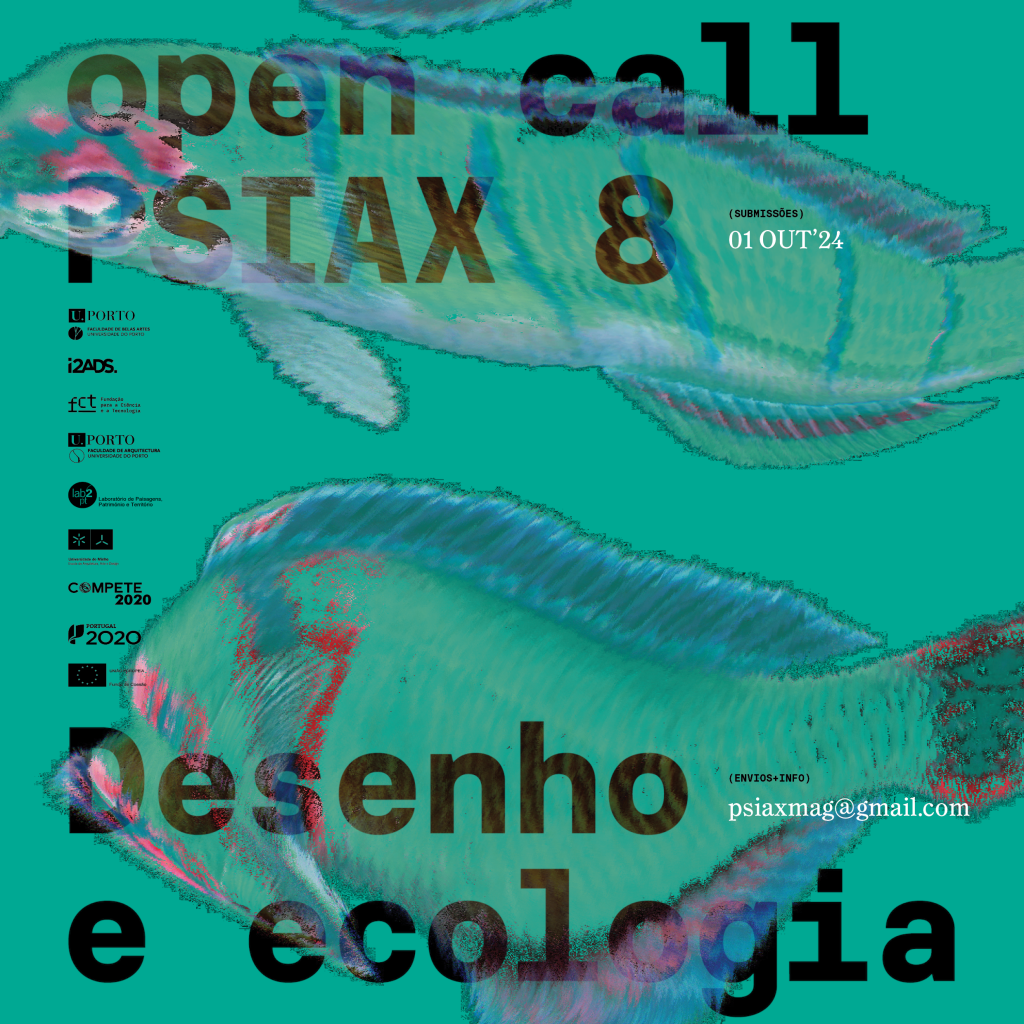OPEN CALL — PSIAX #8
Submissions until October 1st, 2024.
Drawing and images can reflect human thoughts and concerns, representations of nature, and our ideas about the world in a contemporary context marked by pressing ecological and sustainability issues. Does drawing reveal how we relate to our planet, to nature, and our integrated or detached consciousness regarding the natural world? Do images reflect our growing awareness of our negative impact on the planet and the need to act differently?

Ecology, as the science of the interdependence of organisms and their environment, offers valuable insights into the interaction between humans and non-humans, between sentient beings and their environment. Today, it plays a fundamental role in understanding and solving environmental issues such as excessive consumption, climate change, biodiversity loss, habitat degradation, pollution, or the depletion of our planet.
We want to understand how images or drawings can critically question these themes, explore these ideas, and represent our connections between species, potentially proposing alternatives or highlighting current concerns. How can drawing, as a materialization of thought, formalization of ideas, and construction of solutions, inspire, mobilize, educate, and inspire? How does drawing bear witness to our actions, solutions, and changes in our ecological culture?
In this edition, we are interested in showcasing drawings, artistic projects, images, articles, essays, and contextual or critical texts that address, problematize, or explore representations of Nature and Landscape, Environmental Narratives, connections between humans and non-humans, our anthropocentric culture, or other possible worldviews.
Any format submitted (text or project) for evaluation must be sent to psiaxmag@gmail.com by October 1, 2024, in any of the following languages: Portuguese, Spanish, French, English, or Italian.
For contributions such as articles, essays, or texts, they should have between 11,000 and 21,000 characters, including spaces, and include a summary of up to 300 words in Portuguese and English; 4 keywords, and a biographical note of 50 words.
Text contributions should be sent in a single Word file, with the text in Times New Roman, 12-point font, 1.5 line spacing, justified. Footnotes and references should be formatted in 10-point font, single-spaced, according to APA 6 style. References should be integrated into the text. Quotations up to 3 lines should be inserted into the text in quotation marks and followed by the appropriate references. Quotations longer than 3 lines should be highlighted from the body of the text with Times New Roman, 10-point font, single spacing, justified, with a 4 cm left margin indent.
Each artistic project contribution (drawings, artistic projects, images) is limited to 10 images. The images, in .jpg or .tiff format, with a minimum size of 7.5 x 10 cm, 300 dpi, should be identified in the text and the file, accompanied by a technical sheet and references, and should include a summary of up to 500 words in Portuguese and English; 4 keywords and a biographical note of 50 words.
The articles are selected by the editorial committee and subsequently submitted to a double-blind peer review process. The committee reserves the right not to publish articles that do not follow the review recommendations.
Important Dates:
Submission deadline: October 1, 2024
Results: December 1, 2024
Journal release (expected): 2025
More information at:
https://i2ads.up.pt
www.eaad.uminho.pt
www.facebook.com/EAUMinho
* PSIAX is a periodical active since 2002, publishing studies and reflections on drawing and images. It is jointly directed by the Faculties of Architecture and Fine Arts of the University of Porto and the School of Architecture, Art and Design of the University of Minho, being edited by the research units i2ADS and Lab2PT. Drawing and images can reflect human thoughts and concerns, representations of nature, and our ideas about the world in a contemporary context marked by pressing ecological and sustainability issues.